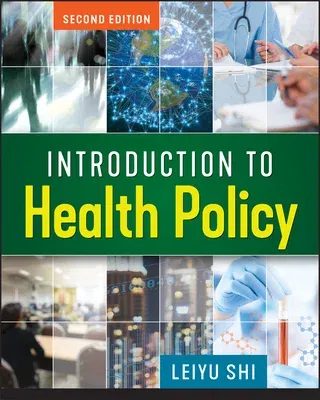Instructor Resources: Test bank, PowerPoint slides for each chapter,
and answer guides for the book's discussion questions. Healthcare needs
in the United States are challenging and continuously evolving. As a
result, healthcare is a constant priority for leaders at the federal,
state, and local levels. Healthcare leaders who have a strong
understanding of the basics of health policy are optimally positioned to
improve health and healthcare in both their organizations and their
communities. Introduction to Health Policy uniquely integrates an
introductory overview of health policymaking with an examination of
critical policy-related issues, research and evaluation methods, and
international perspectives. Author Leiyu Shi, a prominent expert in the
field, provides a basic introduction to key terms and the determinants
of health and policy. He then explores the varied world of policymaking,
ranging from multiple government levels, to the private sector, to the
international stage. Policy-based attempts to address determinants of
health--social, behavioral, and medical--are then explored. The book
concludes by examining policy research and analysis.
Dr. Shi addresses various types of healthcare provisions, including
public health, managed care, ambulatory care, extended care, and acute
care in a hospital setting. Discussion questions and real-world cases
and examples bring theories and concepts to life. This second edition
features: New and updated case studies in each chapterNew references and
updated data Diversified international coverage, with policymaking
examples from Canada, the United Kingdom, Sweden, Australia, and China
Current information on health policy research The latest developments in
healthcare reform New content on the impact of the Affordable Care Act,
patient-centered medical homes, accountable care organizations,
precision medicine and big data, and moreThis introductory book breaks
down the complexity of health policy for future healthcare leaders who
need a better understanding of how policy affects organizations and
communities and how they themselves can influence health policymaking.

